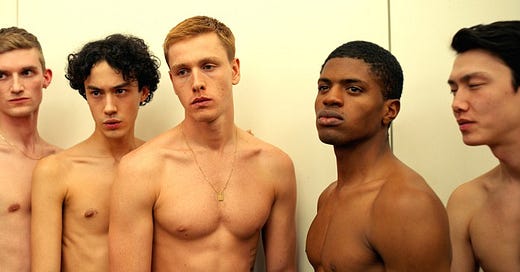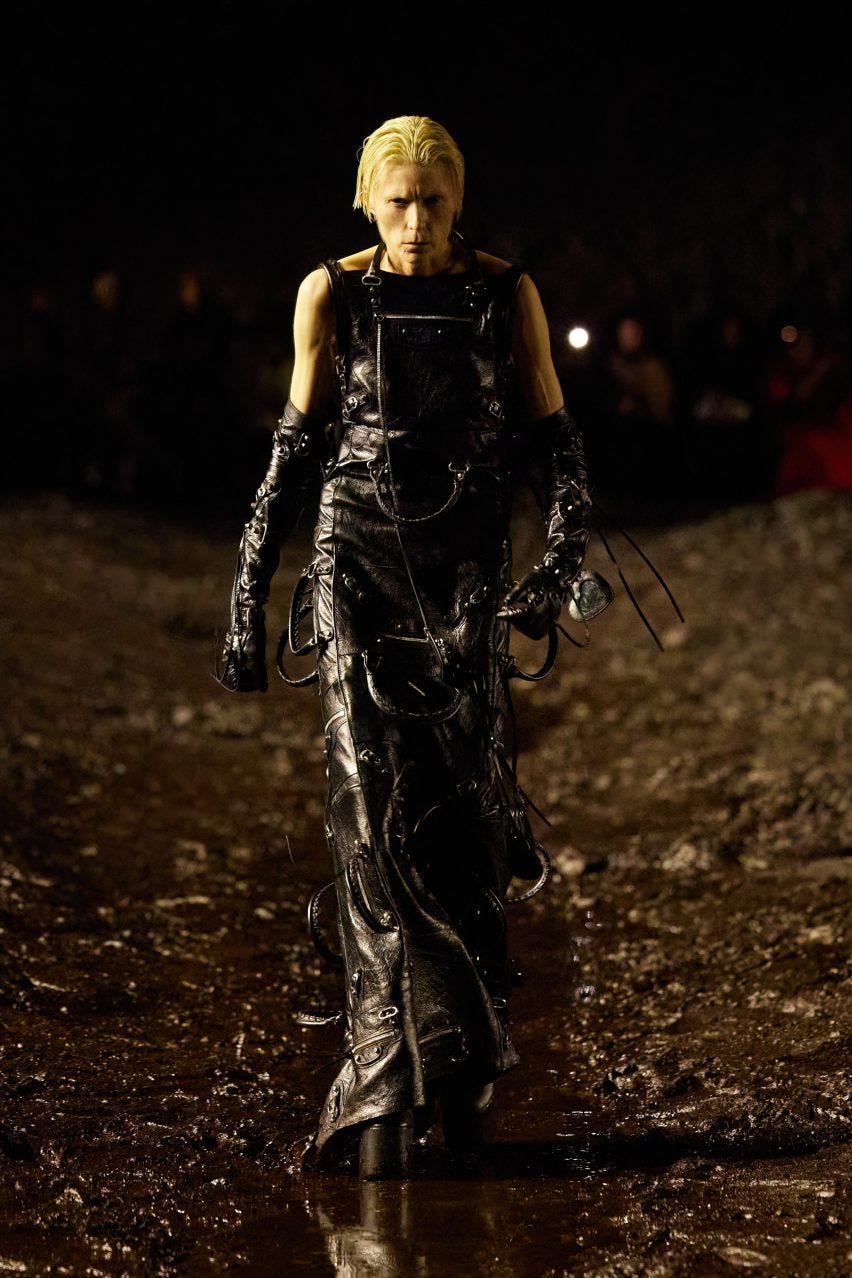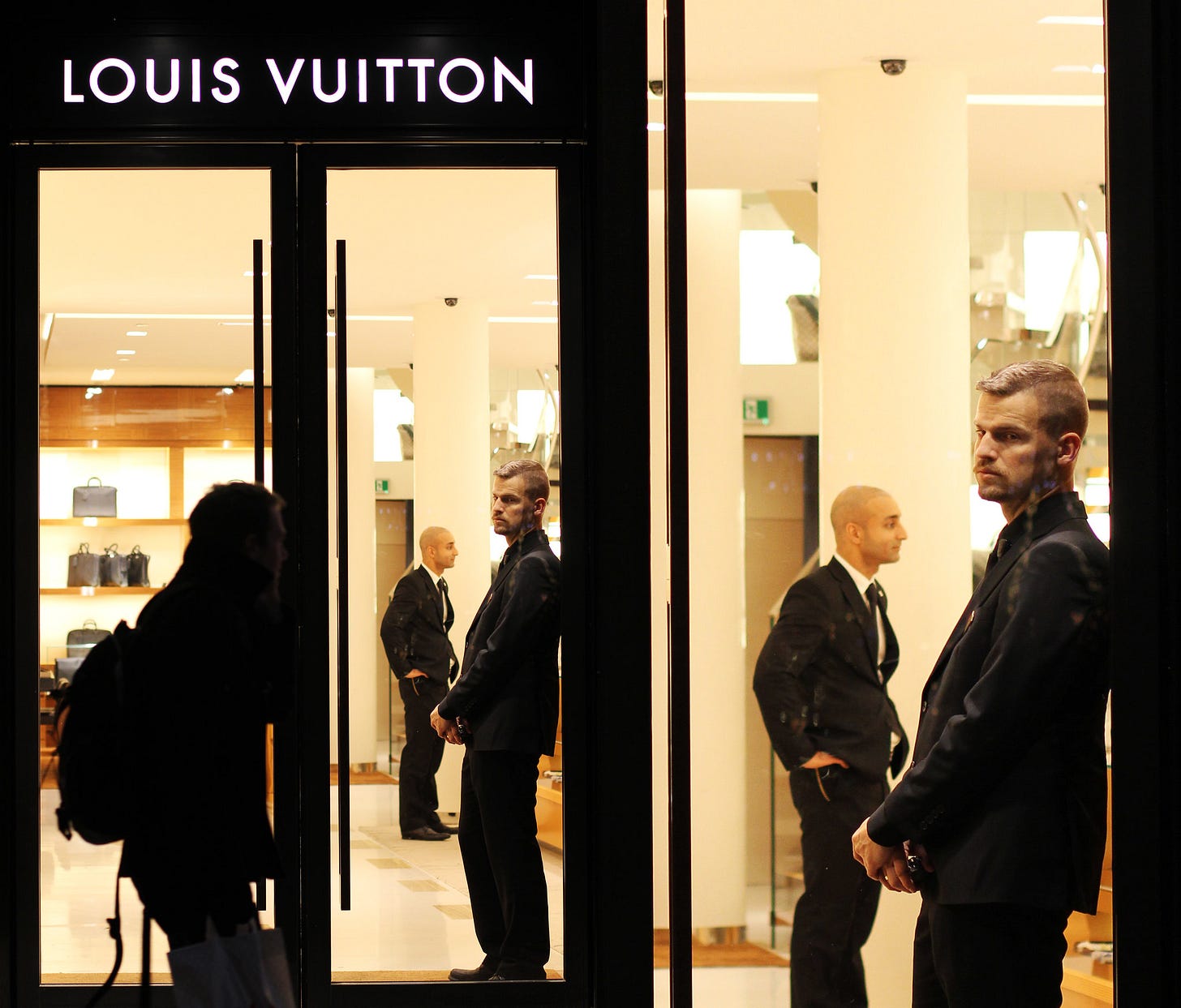Ruben Östlund’s latest Palme d’Or-winning satire, Triangle of Sadness - a film that explores the tawdry relationship between power and beauty - opens with a scene featuring a gaggle of male models at a casting call.
An interviewer shouts at the lineup of shirtless men to do various poses for “grumpy” and “smiley” fashion brands. As the models switch, on command, between intimidating frowns (“show me that Balenciaga look!”) to beaming, welcoming grins (“suddenly I’m dressed in something way less expensive, H&M!”), the fashion reporter lectures: “the more expensive the brand gets, the more you have to look down on your consumer”, while cheap brands call for smile and laughter (“show them that they too can join our happy family!”).
The scene shines a satirical light on the increasingly extreme exclusivity ←→ accessibility axis that brands today must choose to position themselves on, and the way this is reflected in how they present themselves to the world.
And despite the current commercial focus on inclusivity, acceptance and diversity - it’s still scarcity, selectivity and social status that will always have the upper hand. The age-old anxious-avoidant love story, where consumers, desperate for validation and approval, can’t quit chasing cold-hearted, judgemental brands, whose continuously growing inaccessibility and hostility only serve to strengthen their allure.
Balenciaga did a pretty stellar job validating the grumpy hypothesis at this autumn’s Paris Fashion Week, with models that walked through sludgy peat with dour faces. The staff couldn’t care less whether the attendees - even the VIPs - got their footwear muddy or slipped in the slimy aisles as they made their way down to their highly coveted front-row seats.
Pop-up concept stores and skate brands across Dimes Square and Peckham also understand the power of being prickly, intentionally hiring staff of the street-smart grumpy variety to man their retail floors. Likewise, encountering security guards and staff of the more snooty-grumpy kind is fundamental to the experience of any LVMH retail experience.
Grumpiness is the official tone of voice of cities like Paris and Berlin, where coconut-shelled bar staff and uptight hotel concierges add an exciting, almost masochistic edge to the tourist experience.
There’s also a waft of grumpiness inherent in the atmosphere of whatever culinary hotspots are on the Eater essential list at any given time, where the maître d's will sneer at your meek requests for a table for two next month.
Whatever the experience is, there’s a time-tested strategy that almost always works (as long as it’s paired with credibility): play hard to get. Because friendliness and accessibility will only lead to saturation.
But it’s also only a short-term strategy. Because grumpy brands are not long-lasting brands. As Ana Andjelic argues, “serious brands are dead brands”. Brands who take themselves too seriously for too long will eventually become the butt of the joke. The ones that survive are instead able to navigate playfulness, humour and irony. Just don’t be too smiley.






